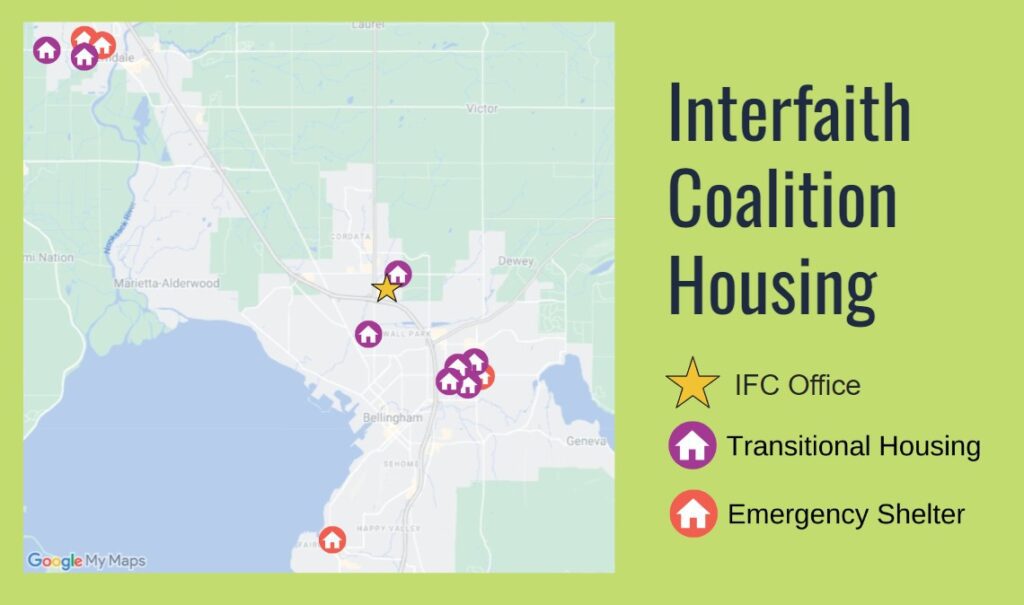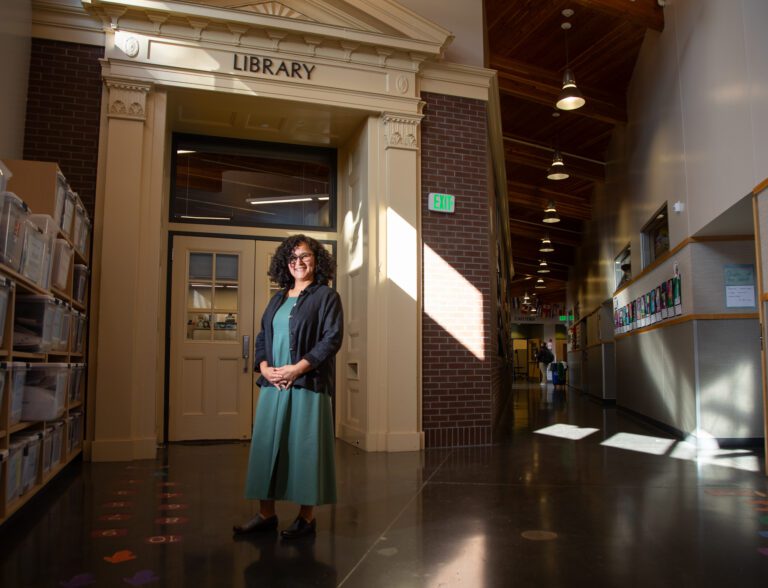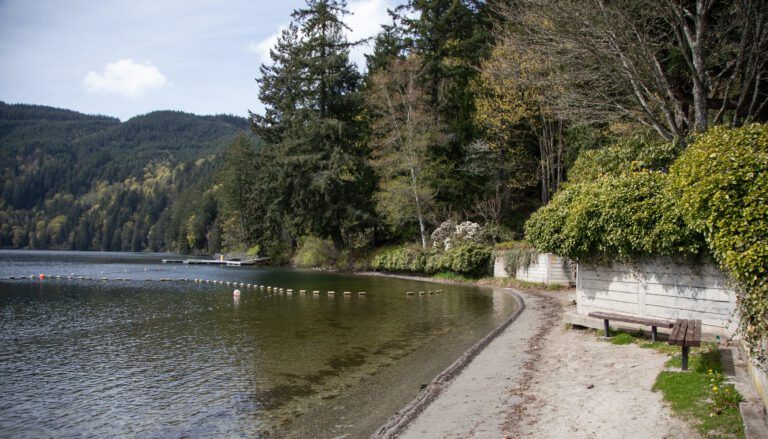Interfaith Coalition is gradually shuttering its housing programs, the nonprofit publicly announced in town halls this week.
The nonprofit, which helps families experiencing homelessness, runs 12 transitional and emergency housing units scattered across Bellingham and Ferndale, but will be moving away from providing housing mainly due to capacity issues. The small size of the organization, the scattered way its housing program has grown, and their inability to provide services to address societal factors in a “meaningful way” have all led to this decision, executive director Devin Connolly said.
At a town hall at First Christian Church on Wednesday, Feb. 7, Connolly said that this decision was “very difficult,” and was “workshopped heavily with our board of directors for over a year.”
Families will be moved out of the housing units as their leases end and will likely all be out of the units by the end of the year. Connolly said they’re hoping they will be able to connect families with other housing options, so no one is left homeless.
“We are doing everything we can to prevent that from happening,” she said.
In 2023, Interfaith Coalition served 18 families, but the size of families varied — one family has 10 members. Now, only half of the units are occupied as families begin to move out.
Interfaith Coalition hosted two town halls so far this week and is hosting another at 6 p.m. Thursday, Feb. 8 at First Congregational Church, to inform its 50 faith organizations about the changes and consult for next steps.
The coalition first developed temporary housing for families in the 1990s and now oversees 12 properties, owning nine of them. The program also provides case management to people in the units. But because the units stretch across Bellingham and into Ferndale, it creates a challenge for the small team attempting to provide services and support to people. It also prevents them from adding additional support services.

“When we embarked on all of these projects, we did not have the same societal factors to contend with that we do now,” Connolly said. “I think that if we were to sit down and construct a housing program from the ground up today, we wouldn’t come up with this, not by a longshot. But this is what we have to contend with today.”
While issues of capacity and location are key factors in this decision, drug use is another factor.
Connolly said they’ve had issues with contamination in the homes due to residents smoking meth. She said they currently test the walls of the houses regularly, and they’ve had to abate four of their 12 units over the last year. She said it costs between $8,000 to $12,000 to do the abatement and repurchase all the major appliances when a house gets contaminated.
The future focus of the coalition is still up in the air. Longstanding programming like the meal distribution program CAST (Coffee and Sandwiches Together), and the toy and winter coat drives will remain, but Connolly said they’re looking towards creating more opportunities for their engaged faith communities to volunteer.
Frank McIntyre, treasurer for the board of directors, said at the Wednesday town hall that one option is to create mobile services: mobile food, shower and laundry facilities.
He said this would result in three core services they could provide regularly and would allow for many opportunities to get people involved.
“It’s going to be something that maybe we can bring all of our faith communities together and really feel like we’re impacting the overall community in a positive way,” McIntyre said at the town hall.
No decisions have been made yet on the path forward, but Connolly said she hopes they can have something up and running by the end of the summer.
As for the properties, selling isn’t off the table, but Connolly has been speaking with other nonprofits about them potentially running their own housing programs in the units. So far, there have been no takers. The estimated value of all the properties combined is $3 million, she said at the town hall.
“We recognize that the need for housing remains, and we also would welcome the chance to collaborate with other providers about what to do with our homes, because that’s still up in the air,” she said.
Charlotte Alden is CDN’s general assignment/enterprise reporter; reach her at charlottealden@cascadiadaily.com; 360-922-3090 ext. 123.




